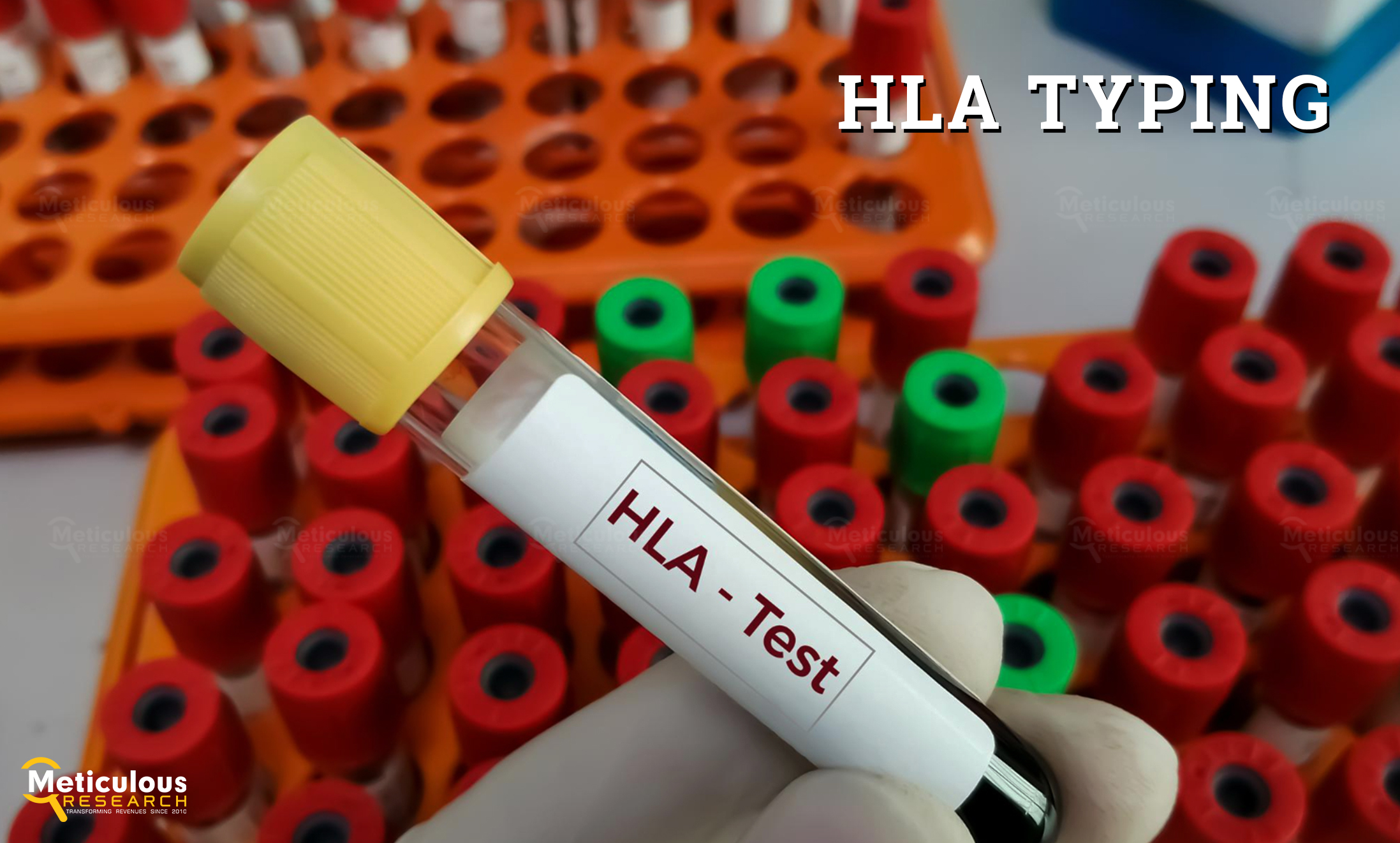
The Human Leukocyte Antigen (HLA) Typing market is witnessing significant growth, driven by the increasing incidence of organ failures and breakthroughs in HLA typing technology. HLA genes, expressed by almost all nucleated cells, play a critical role in the body’s acceptance or rejection of allogenic grafts, making precise HLA matching between donors and recipients crucial for successful organ transplants.
Request For Sample Report: https://www.meticulousresearch.com/request-sample-report/cp_id=5311
With organ transplantation becoming more common due to rising organ failures, the need for accurate HLA typing has surged. Factors contributing to organ failures include the growing prevalence of chronic health conditions such as diabetes, high blood pressure, metabolic syndrome, and chronic kidney disease (CKD). According to the Centers for Disease Control and Prevention (CDC), approximately 37 million Americans suffered from CKD in 2021, significantly increasing the likelihood of organ failure and boosting demand for transplantation.
The rise in organ transplant procedures, coupled with the improved success rates and post-transplant outcomes, continues to drive favorable growth in the HLA typing market. Technological advancements in HLA typing solutions are further accelerating this expansion.
Technological Advancements Revolutionizing HLA Typing
Early methods for HLA typing relied on serological assays, but these techniques were limited by low resolution, polyclonal sera complications, and inaccurate antigen identification due to cross-reactions. The introduction of Polymerase Chain Reaction (PCR) technology significantly enhanced HLA genotyping, offering greater accuracy and fewer errors. However, PCR’s limitations in distinguishing between alleles at a locus led to the adoption of more advanced technologies, such as Sanger sequencing.
More recently, platforms like Next Generation Sequencing (NGS) and third-generation sequencing have revolutionized HLA typing. NGS offers high-resolution genotyping by allowing parallel sequencing of DNA molecules and characterization of entire HLA genes, while third-generation sequencing provides long reads and mitigates PCR bias. These advancements have made HLA typing more precise, significantly benefiting organ transplant procedures.
Browse in Depth: https://www.meticulousresearch.com/product/hla-typing-market-5311
Major industry players are increasingly focused on introducing new HLA typing solutions powered by these advanced technologies. In 2021, Thermo Fisher Scientific launched a rapid NGS assay capable of delivering high-resolution data in just five hours, ideal for characterizing HLA genes in solid organs from deceased donors. Similarly, Genome Diagnostics B.V. (GenDx) introduced the NGStrack reagent and TRKengine software, designed for HLA typing with chimerism monitoring using NGS technology.
Scope of the Report:
- HLA Typing Market, by Product
Consumables, Instruments, Software & Services
- HLA Typing Market, by Technology
- Molecular Assays
- PCR-based Molecular Assays
- Sequence-based Molecular Assays
- Sangers Sequencing
- Next-generation Sequencing
- Other Sequence-based Molecular Assay
- Non-molecular Assays
- Serological Assay
- Mixed Lymphocyte Cultural Assay
- HLA Typing Market, by Application
- Diagnostics
- Donor Recipient Cross-Matching
- Infectious Disease Diagnostics
- Cancer Diagnosis
- Transfusion Therapy
- Other Diagnostic Applications
- Research
- HLA Typing Market, by End Users
- Diagnostics Laboratories
- Hospitals & Transplant Centers
- Academic & Research Institutes
- HLA Typing Market, by Product
Quick Buy: https://www.meticulousresearch.com/Checkout/18936631
HLA Typing Expands into Infectious Disease and Cancer Diagnostics
Beyond organ transplantation, HLA typing is becoming increasingly integral to diagnostics in infectious diseases, immune disorders, and cancer. The HLA region has been linked to susceptibility to specific diseases, and HLA gene markers are also involved in diagnosing autoimmune conditions. For instance, the presence of HLA-B27 antigens in white blood cells is used to diagnose autoimmune diseases such as ankylosing spondylitis, reactive arthritis, and juvenile arthritis.
Industry Outlook
As the demand for organ transplants continues to rise, coupled with ongoing innovations in HLA typing technologies, the HLA typing market is positioned for robust growth in the coming years. The introduction of advanced molecular assays and sequencing platforms is expected to further enhance the accuracy and efficiency of HLA typing, ultimately improving the success of transplant procedures and expanding the scope of HLA testing into broader healthcare applications.
Related Reports:
Chromatography Consumables Market: https://www.meticulousresearch.com/product/chromatography-consumables-market-5169
High-performance Liquid Chromatography (HPLC) Market: https://www.meticulousresearch.com/product/high-performance-liquid-chromatography-market-5395
Forensic Technologies Market: https://www.meticulousresearch.com/product/forensic-technologies-market-1204
About the company:
We are the trusted research partners for leading businesses around the world, providing market intelligence focused towards building revenue transformation strategies. Our research is used by Fortune 500 organizations to attain success by scouting next generation revenue opportunities well ahead of their competition.
Contact:
Meticulous Market Research Inc.
1267 Willis St, Ste 200 Redding,
California, 96001, U.S.
USA: +1-646-781-8004
Europe : +44-203-868-8738
APAC: +91 744-7780008
Email- sales@meticulousresearch.com
Visit Our Website: https://www.meticulousresearch.com/
Connect with us on LinkedIn- https://www.linkedin.com/company/meticulous-research





